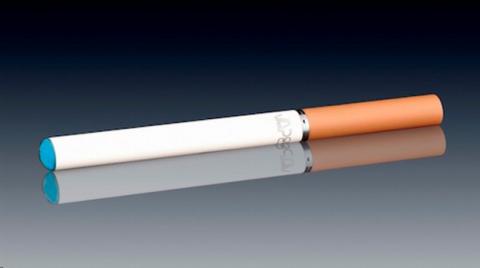Californians Want E-Cigarettes to be Regulated

From our content partner New America Media:
SACRAMENTO-- A large majority of California’s registered voters believe that electronic cigarettes lead to nicotine addiction among young people and need to be regulated, according to a new study by The Field Poll.
Close to two-thirds of African-Americans, three-quarters of Hispanics and non-Hispanic whites believe that e-cigarettes and other vaping products could lead to people becoming addicted to nicotine.
Three-quarters of those polled say they would support a tax on e-cigarettes.
“The results are pretty unambiguous,” noted Mark DiCamillo, director of The Field Poll in California, at a press conference here at the Sheraton Grand Oct. 26.
A total of 1,000 people were interviewed for the study.
The e-cigarette is also known as a personal vaporizer, or electronic nicotine-delivery system. Some look like a regular cigarette;, others come with a pocket-size vaporizer and nicotine juice cartridges. They have been on the U.S. market for about eight years.
Jennifer Unger, professor of preventive medicine at the University of Southern California, said the sweet flavor manufacturers put into e-cigarettes is a “clear attempt to entice youth” into buying them, like candy. The poll showed that 57 percent of voters want to reduce the product’s appeal by prohibiting the addition of flavors. Even some smokers (41 percent) shared this view.
Kula Koenig, director of government relations at the American Heart Association in Sacramento, said that data from the Centers for Disease Control and Prevention (CDC) show that e-cigarette use among middle and high school students tripled from 2013 to 2014.
Among high school students, use increased from 4.4 percent in 2013 to 13.4 percent in 2014, rising from approximately 660,000 to 2 million students, said Timothy M. Gibbs of the American Cancer Society’s Cancer Action Network.
He said increasing taxes on e-cigarettes would deter young people from buying them.

“Youth are price-sensitive,” he said. “For every 10 percent increase in the price of tobacco, there’s a 6.5 percent decrease in the use of tobacco products.”
Use increase of e-cigarettes could be linked to advertising. Koenig said there’s been a 250 percent increase in advertising between 2011 and 2013, touting e-cigarettes, she said. Unlike traditional cigarettes, there are no federal regulations against advertising the electronic version.
“Traditional cigarettes are not allowed to be shown in ads on TV,” Koenig said, adding: “I’m fighting against the perception that this is just vapor.”
She said she wants to bridge the gap between results of the poll and action in the state capitol.
Anti-tobacco activists are trying to get a ballot initiative in the November 2016 election that would impose a tax increase of $2 per pack on cigarettes. They want e-cigarettes taxed as well.
The only state law currently enforced relating to e-cigarettes is that it can’t be sold to minors.
The e-cigarette legislation introduced by Sen. Mark Leno, D-San Francisco, died in committee earlier this year, after those opposed to it made an amendment declaring that e-cigarettes are not tobacco products. But the bill, part of the special session on health, could well be back in the legislature early next year.
A number of health advocacy groups have sued e-cigarette manufacturers for allegedly falsely claiming that their products were safe. The Oakland, Calif.-based Center for Environmental Health said last month that they planned to sue the 21 e-cigarette manufacturers whose products it tested and found to have cancer-causing chemicals if they did not recall their products from the market within 60 days.
From our content partner New America Media




























































































































































































































































































































